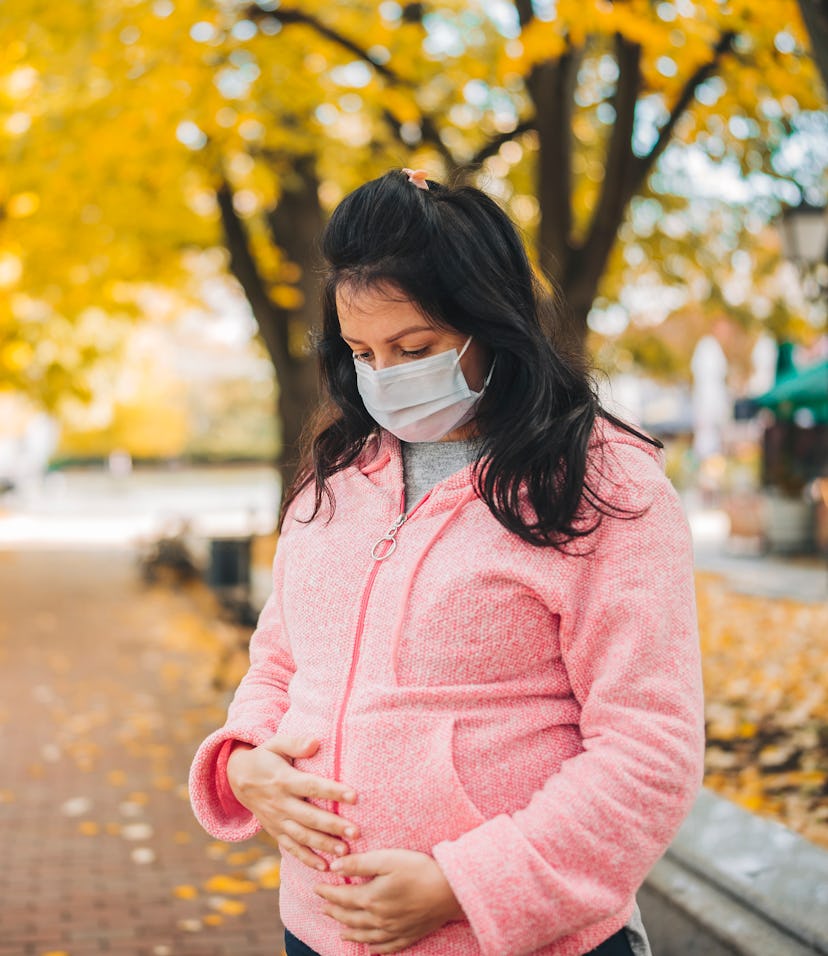coronavirus

Everything You Need To Know About The Covid Vaccines And Pregnancy
The FDA's full approval of Pfizer's Covid-19 vaccine includes pregnant people.
The coronavirus pandemic has officially lasted the length of two full-term pregnancies, and while vaccines have provided protection for many, CDC statistics show that as of July 31, only 23% of pregnant people have received at least one dose of vaccine against the coronavirus.
That’s notable because with the highly infectious Delta variant sweeping its way across the country, the vast majority of hospitalizations and deaths from Covid-19 are now among the unvaccinated. What’s more, pregnancy is on the CDC’s list of conditions that increase the risk of severe disease for anyone who contracts the coronavirus.
That lead the CDC to issue its strongest recommendation yet that pregnant people get vaccinated. “CDC encourages all pregnant people or people who are thinking about becoming pregnant and those breastfeeding to get vaccinated to protect themselves from Covid-19,” the Dr. Rochelle Walensky, the CDC director, said at a recent press conference. “The vaccines are safe and effective, and it has never been more urgent to increase vaccinations.”
The CDC cites new and promising data about the safety and effectiveness of the vaccines to help reassure those who are pregnant and want protection from the virus. “These data suggest that the benefits of receiving a Covid-19 vaccine outweigh any known or potential risks of vaccination during pregnancy,” their website stated.
And as of Aug. 23, 2021, the FDA has granted full approval to Pfizer’s Covid-19 vaccine for all people ages 16 and older. But even with full approval, the FDA will continue to monitor those enrolled in the pregnancy registries to make sure all goes well.
The Vaccines Are Safe For Pregnant People And Their Unborn Babies
Pregnant people were initially excluded from clinical trials for the vaccines, a common practice as those groups are usually tested after a medication is found to be safe for the general population. Now that more time has passed and more people have received the vaccines, there is more data to draw from. The CDC’s recent strengthening of recommendations for pregnant women to receive the vaccine is based on information collected through their V-Safe pregnancy registry. The registry collects data from “people who received Covid-19 vaccination in the periconception period (within 30 days before last menstrual period) or during pregnancy,” which as of July 26 consisted of nearly 140,000 participants.
This information is consistent with the CDC's Advisory Committee on Immunization Practices (ACIP) earlier conclusion that pregnant women in the Tier 1a group (identified as the first designated vaccine recipients) should receive the vaccine. They stated, "pregnancy should be a precaution, but not a contraindication to receive a Covid-19 vaccine," while emphasizing the need for women to make an informed decision.
The American College of Obstetrics and Gynecology (ACOG) came to a similar conclusion, and, says Dr. Michael Cackovic, a maternal fetal medicine physician at The Ohio State University Wexner Medical Center, "the Society of Maternal Fetal Medicine recommends that healthcare workers, as prioritized for the vaccine, be offered the vaccine if pregnant."
Consider The Risks of Covid-19 To A Pregnancy
Anyone weighing the decision to be vaccinated should keep in mind that the Centers for Disease Control and Prevention (CDC) warn that "pregnant people are at an increased risk for severe illness from COVID-19 compared to non-pregnant people." This includes the risk of preterm birth. Additionally, the CDC recommends that those who are pregnant still receive the flu vaccination and any other vaccines recommended by their physician.
"Pregnancy has consistently been demonstrated to be a risk factor for severe disease with regard to Covid-19; severe disease being defined as needing ventilation support and/or hospitalization," says Dr. Cackovic. "Women with pregnancies complicated by certain medical conditions appear to have a particularly elevated risk of adverse maternal outcomes. Additionally, available data that Covid-19 can be transmitted to the fetus during pregnancy appears to be rare, but possible. There is insufficient data to determine an increased risk of fetal loss or congenital anomalies with Covid-19."
Other Benefits To The Covid Vaccine During Pregnancy
Not only are you protecting yourself when you receive the vaccine during pregnancy, but you’re also protecting your baby (and any other children you have that are too young to receive the vaccine). A study published in the American Journal of Obstetrics and Gynecology found that not only were antibodies present in the mothers who received the vaccine, but antibodies were also found in all umbilical cord blood and breast milk samples. This proves that the antibodies are transferred to your baby, protecting them as well as yourself.
Experts:
Dr. Michael Cackovic, maternal fetal medicine physician at The Ohio State University Wexner Medical Center
Study referenced:
Gray K, Bordt E, Atyeo C, Elovitz M, Alter G, Edlow A. (2021) Coronavirus disease 2019 vaccine response in pregnant and lactating women: a cohort study. The American Journal of Obstetrics and Gynecology, https://www.ajog.org/article/S0002-9378(21)00187-3/fulltext.
This article was originally published on